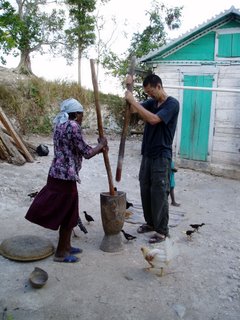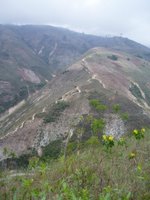I was a bit surprised on my return from the Caribbean after 2.5 months that there is raging debate over immigration. There's definitely some synchronicity there since I spent the past few months working with our Dominican and Haitian staff on establishing a new project in the border zone where migration is a huge issue. Thousands of Haitians make their way illegally to the DR to try and eek out a living while many Dominicans and Haitians both climb on questionable watercraft and put themselves at the mercy of the Caribbean Sea in order to have a chance at making a better life in Canada or the US. I don't really have any great answers as to what the US or Canada should do in terms of immigration policy but I can tell you with certainty that the phenomenon itself is very real. It starts as a trickle in a hundred poor villages, builds in the paths and market towns, and grows to a mighty river at the borders and ports of entry of wealthier nations. Sometimes this river is calm, other times raging, but to me it always seems powerful and in some way, undeniable.
The organization I work for, and others like it, work to create economic alternatives for people. If everything works right, they then have a choice, more choice than just chopping down the last remaining forest, or fleeing their homeland. Granted, some may still choose to leave and try their luck elsewhere, but my personal feeling is that the average person in Haiti or the DR or a dozen other countries, if they knew they could get a steady job, or get a decent education, or run a profitable business, they wouldn't want to leave home.
Speaking of home, it's good to be back. It's nice to be able to take a hot shower instead of using a 5 gallon bucket and a dipper, or be thinking in the back of my mind about kidnappings, that kind of thing. (Although things have calmed down considerably in Haiti since the elections in February, thankfully.)
Bob
Photo is me milling millet for the first and possibly last time. If you did this for a couple weeks straight you'd be ripped, as most Haitian farming families are.






